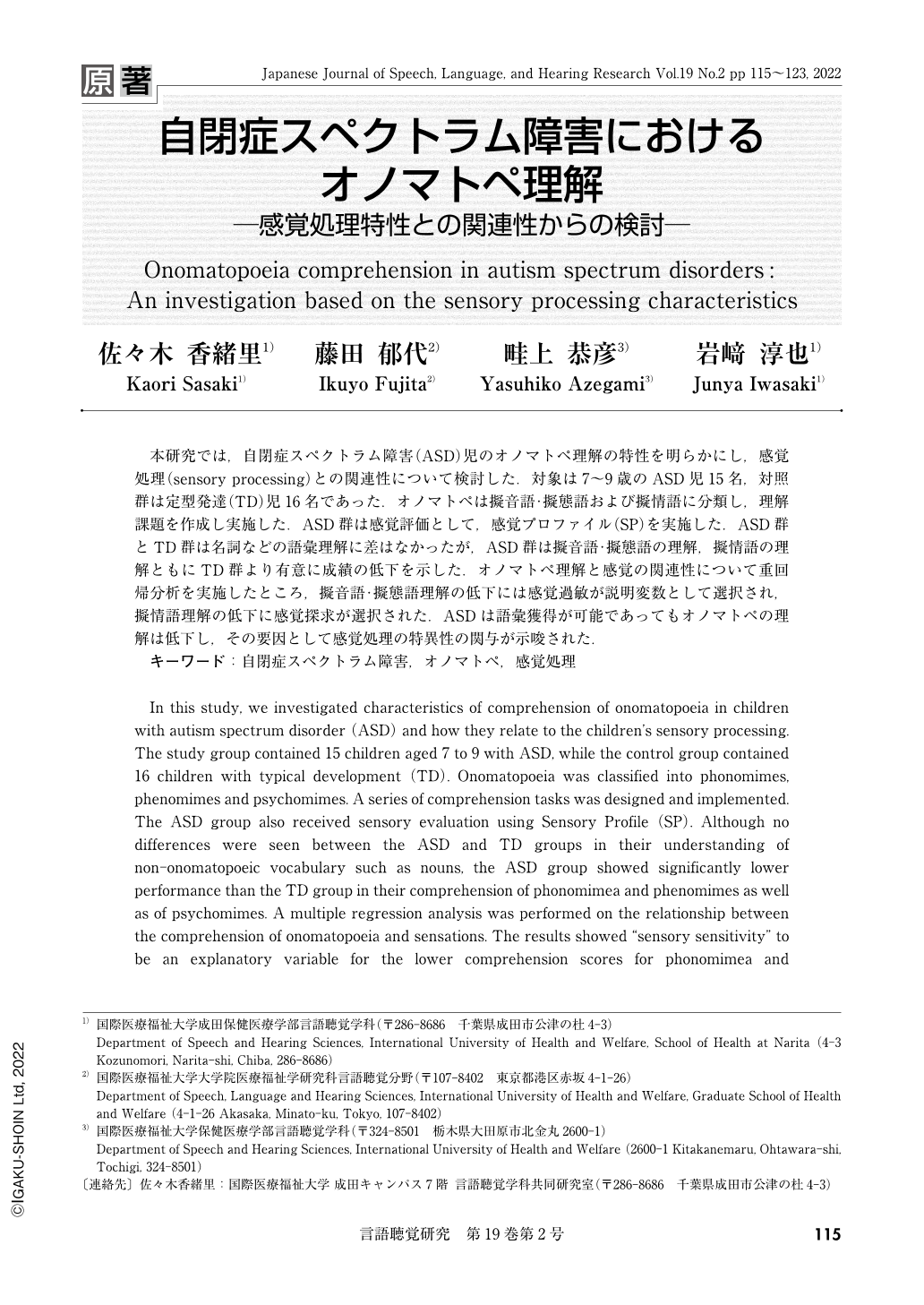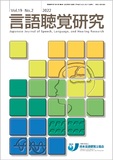Japanese
English
- 有料閲覧
- Abstract 文献概要
- 1ページ目 Look Inside
- 参考文献 Reference
本研究では,自閉症スペクトラム障害(ASD)児のオノマトペ理解の特性を明らかにし,感覚処理(sensory processing)との関連性について検討した.対象は7〜9歳のASD児15名,対照群は定型発達(TD)児16名であった.オノマトペは擬音語・擬態語および擬情語に分類し,理解課題を作成し実施した.ASD群は感覚評価として,感覚プロファイル(SP)を実施した.ASD群とTD群は名詞などの語彙理解に差はなかったが,ASD群は擬音語・擬態語の理解,擬情語の理解ともにTD群より有意に成績の低下を示した.オノマトペ理解と感覚の関連性について重回帰分析を実施したところ,擬音語・擬態語理解の低下には感覚過敏が説明変数として選択され,擬情語理解の低下に感覚探求が選択された.ASDは語彙獲得が可能であってもオノマトペの理解は低下し,その要因として感覚処理の特異性の関与が示唆された.
In this study, we investigated characteristics of comprehension of onomatopoeia in children with autism spectrum disorder (ASD) and how they relate to the children's sensory processing. The study group contained 15 children aged 7 to 9 with ASD, while the control group contained 16 children with typical development (TD). Onomatopoeia was classified into phonomimes, phenomimes and psychomimes. A series of comprehension tasks was designed and implemented. The ASD group also received sensory evaluation using Sensory Profile (SP). Although no differences were seen between the ASD and TD groups in their understanding of non-onomatopoeic vocabulary such as nouns, the ASD group showed significantly lower performance than the TD group in their comprehension of phonomimea and phenomimes as well as of psychomimes. A multiple regression analysis was performed on the relationship between the comprehension of onomatopoeia and sensations. The results showed “sensory sensitivity” to be an explanatory variable for the lower comprehension scores for phonomimea and phenomimes, while “sensory seeking” was revealed to be an explanatory variable for the lower comprehension score of psychomimes. Our findings suggest that, although children with ASD are capable of acquiring vocabulary, their understanding of onomatopoeia is less developed, which is likely due to their unique ways of sensory processing.

Copyright © 2022, Japanese Association of Speech-Language-Hearing Therapists. All rights reserved.


